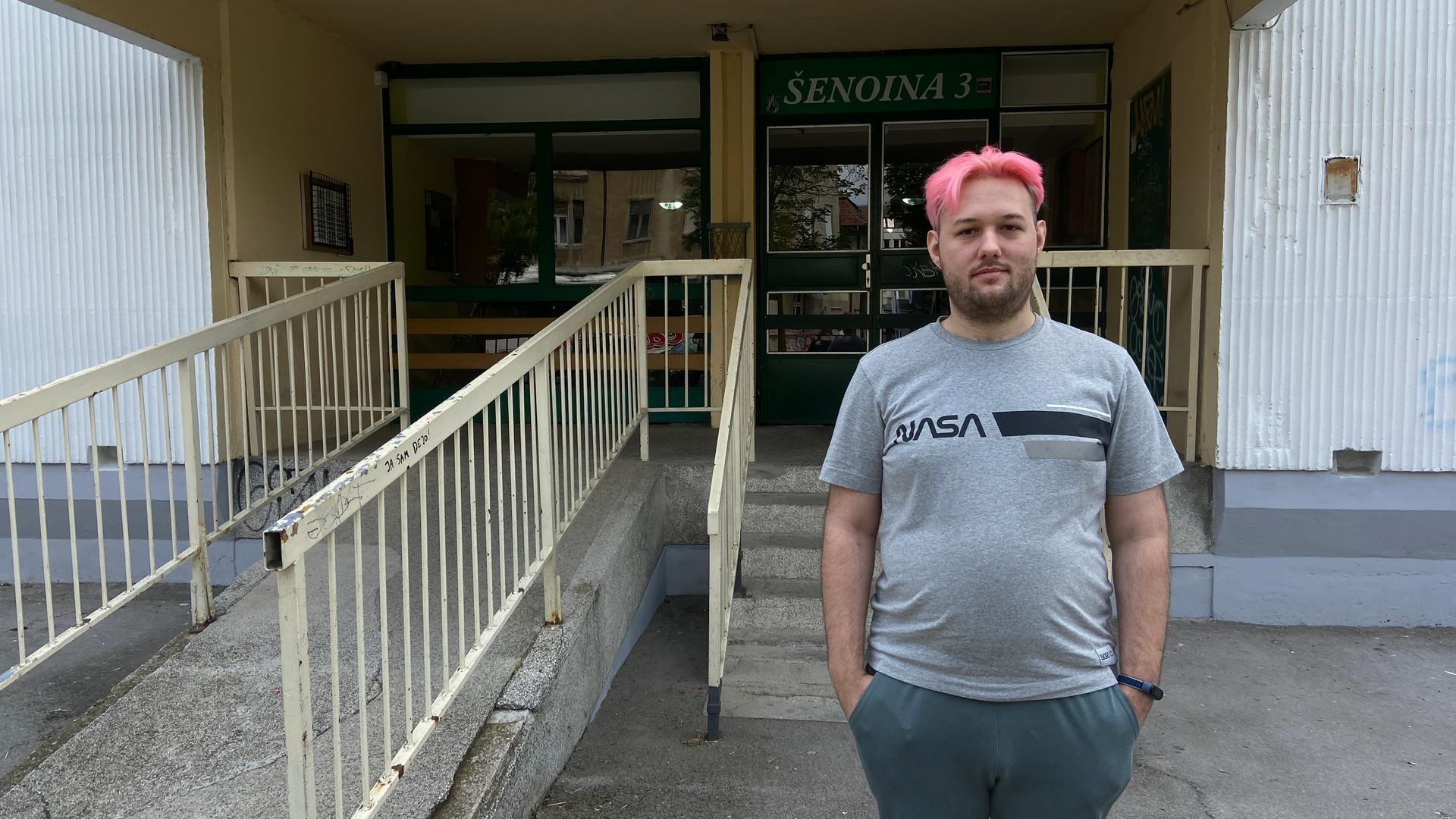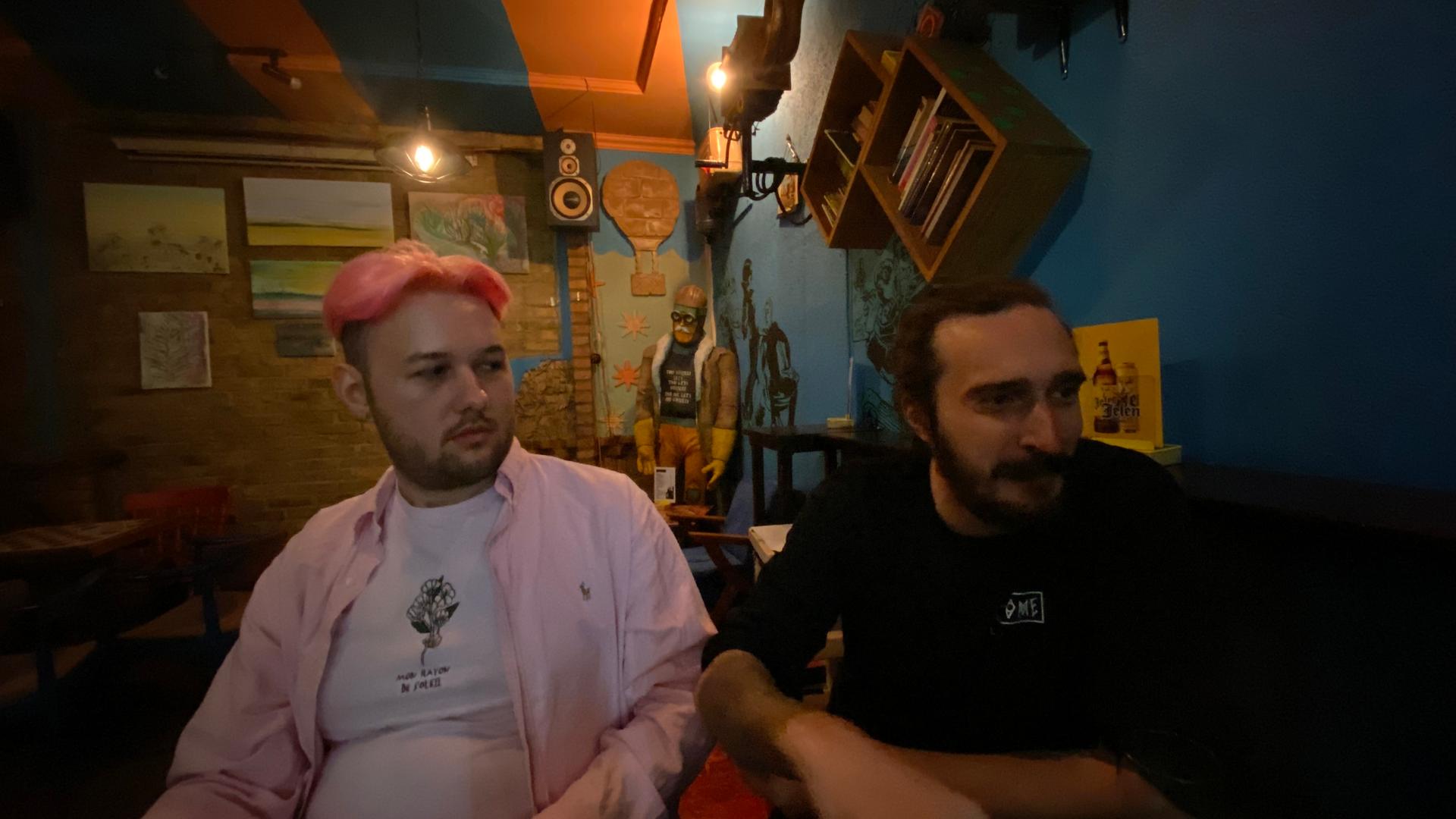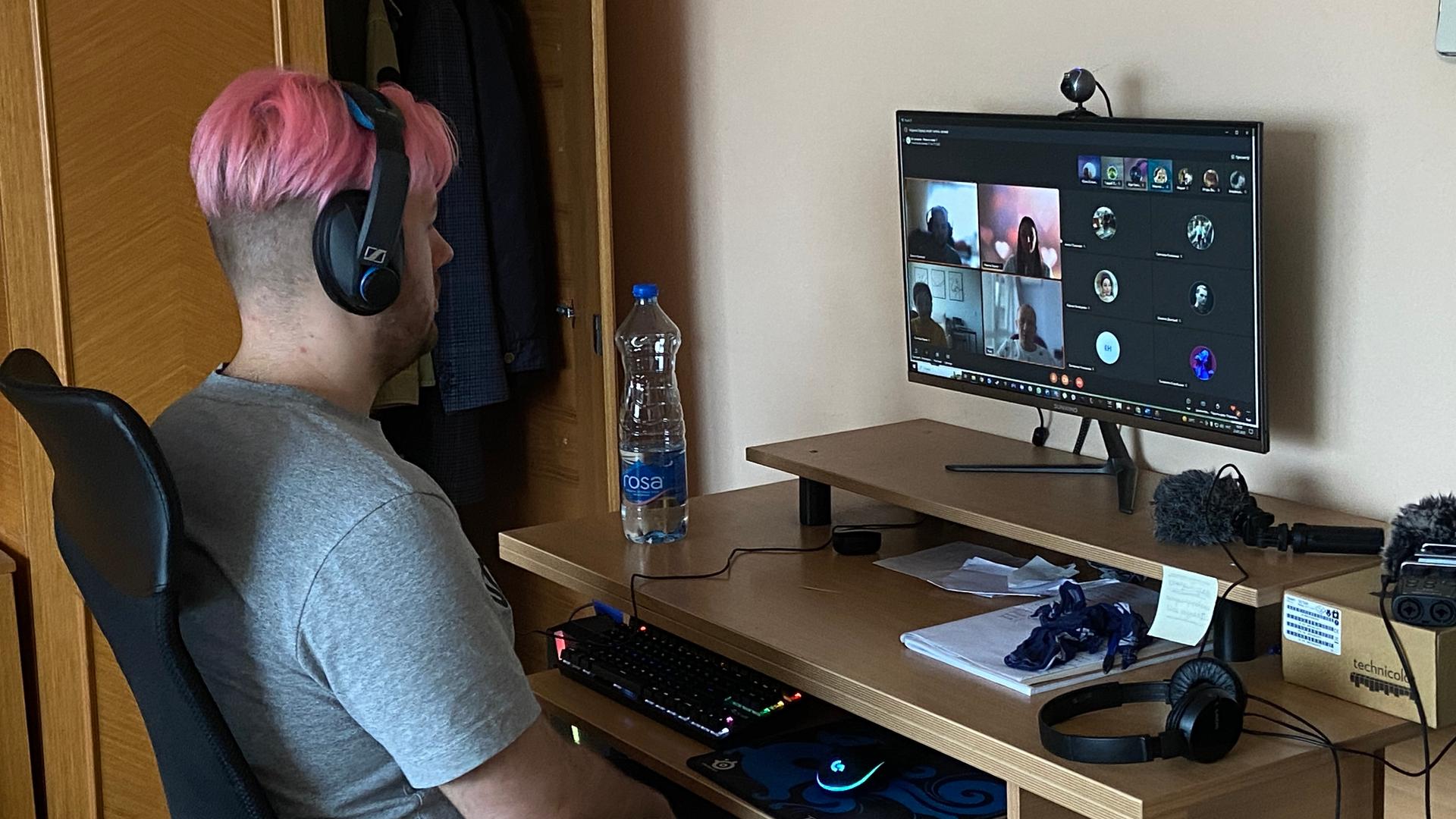Daniil Kuznetsov, a 24-year-old game designer from Russia, said that starting over in Serbia means that old rituals become new again — including the simplest things, like exercising.
From his tiny apartment in the quiet city of Subotica, where he now lives and works, he said he got winded after his first workout since fleeing Russia eight months earlier.
About a dozen Russian game developers like Daniil Kuznetsov have wound up in this city, on the border of Serbia and Hungary, to start over after escaping from Russia. Some left after facing arrest for aiding Ukraine, while others wanted to avoid getting drafted.
Daniil Kuznetsov said life was good in his home city of Voronezh, in central Russia, where he worked for an American game publisher. When the war started, he was against it, he said, but he hung tight hoping things would calm down. Then, he lost his job.
“A lot of publishers just cut off the Russian employees,” he said.
“They said, we cannot work with you. We don’t know how to send the money. We don’t actually know if we can send you the money because maybe they [will] get sanctions from our government.”
Daniil Kuznetsov was suddenly without income as the war continued to escalate. His mother had fled Russia for Serbia weeks earlier, so he packed a suitcase and headed to the airport.
“I was just praying to heaven,” he said. “I was going to the passport control. I was sweating. What was I gonna say? I say, OK, I’m going on vacation. [I did] not mention anything about war or army.”
Daniil Kuznetsov made it out just in time. Two weeks later, Russian President Vladimir Putin ordered young men of his age to be drafted.
He said that the threat of mobilization forced him to grab his things and go.
The online video game designer said he already found a new job in Subotica.
And he also changed his image. He showed off a closetful of stylish sports coats he picked up from thrift stores. Every couple of weeks, he dyes his hair a different color. On this day it was pink.

But he said the biggest change is socializing much more — even with strangers — something he was not accustomed to in Russia.
Barhopping is how he met about a dozen other Russian game designers here in Subotica, including Boris, a young man from St. Petersburg. This isn’t his real name—he asked to change it due to fears of reprisal against his family in Russia.
Boris said that back in Russia, he was offering free game design classes to anyone donating money to the Ukrainian army. He said he raised about $43,700 before the operation began to feel too dangerous.
“We [organized] people who took the money to Ukraine,” he said. “And if our government knew about this, they can take us to prison for our whole lives.”
Rather than sitting in prison, Boris now works for an American gaming company. This pays his rent, but he said skateboarding makes him feel most at home — and it’s become his way of connecting with his Serbian neighbors. Skating is apolitical, he said. To ride, you need your eyes facing forward.

For Daniil Kuznetsov, he said staying apolitical is also important, but it’s not always easy. Even with new clothes, new hair and new friends, adjusting to a new home can still be challenging.
Daniil Kuznetsov’s 18-year-old brother Artem Kuznetsov spent some time in Subotica, but ultimately went back to Russia. He said his brother felt lost in this new world. But since returning to Russia, he said his brother’s mental health has only gotten worse.
“He is actually very depressed,” he said.
He reached his brother by phone one morning. He said he was feeling better, and thinking more about his future.
Daniil Kuznetsov offered him a place to stay in Serbia, but he declined.
“Better the devil you know,” Artem Kuznetsov said before hanging up.
Daniil Kuznetsov said he understands even though he is quite worried about his brother getting drafted. At least Artem Kuznetsov avoids what Daniil Kuznetsov calls the “Russian expat dilemma.”
“When you leave, you are hated in Russia and you are hated outside Russia,” he said. “That’s the problem. You cannot go anywhere and think, OK, I am OK here.”
He hopes that in Serbia, a traditional ally where citizens generally admire Russian culture, things might be different.
“I love the country because, you know, it’s the strange feeling that Serbians love Russians more than Russians do,” he said. “I feel here more at home, more than in Russia.”
At this point, he said it’s possible that he will settle here for good.
